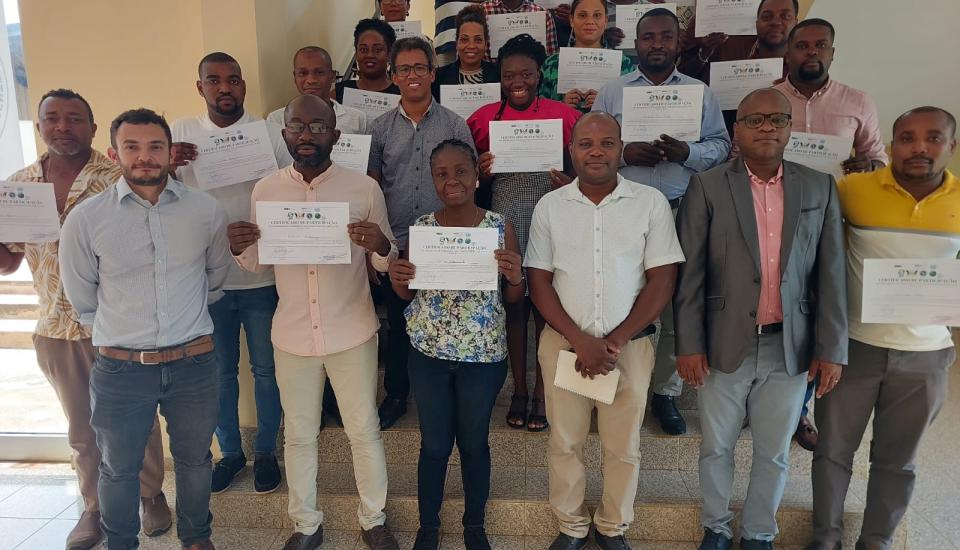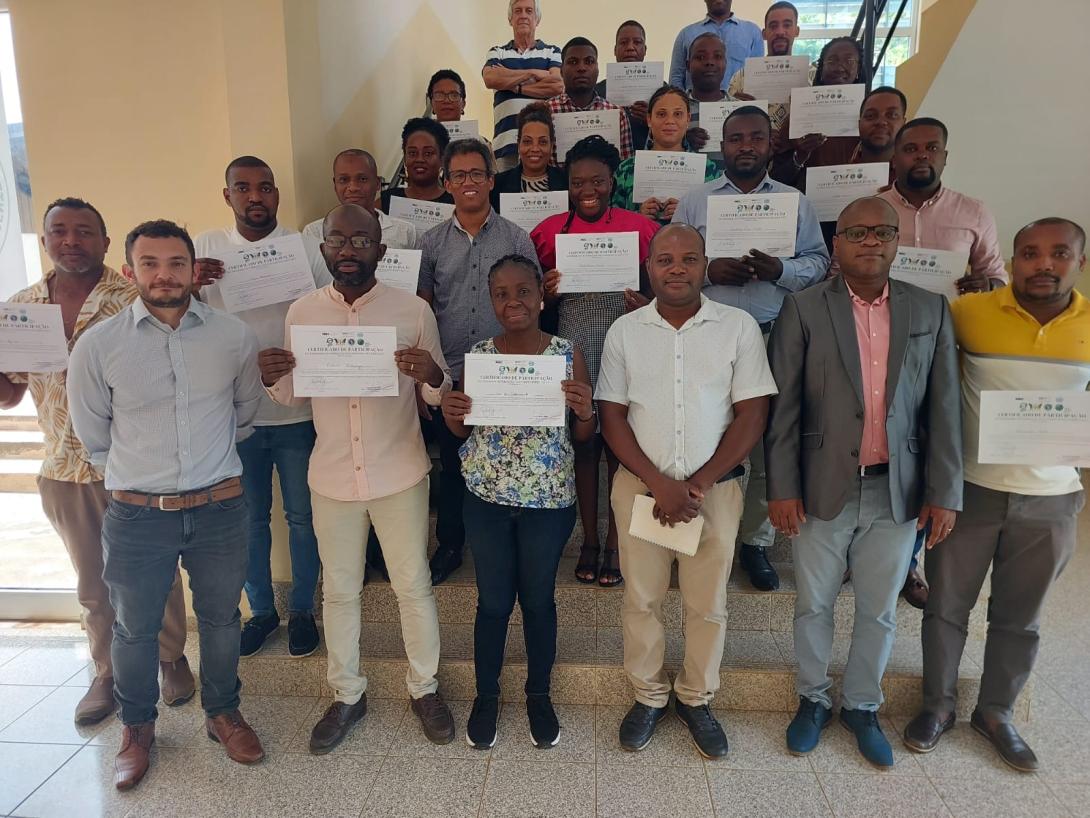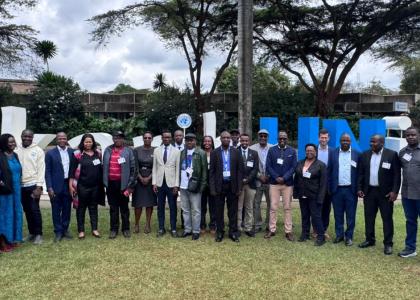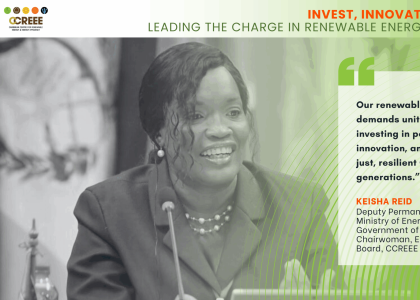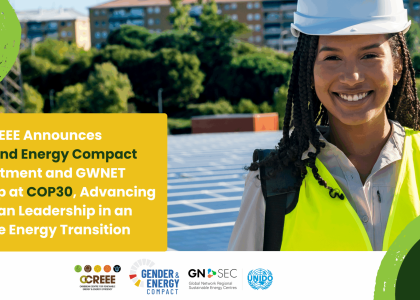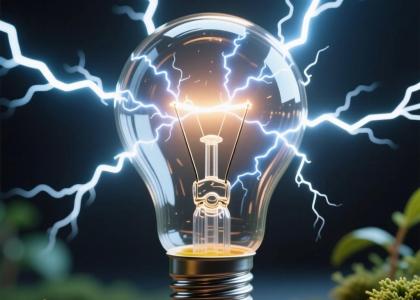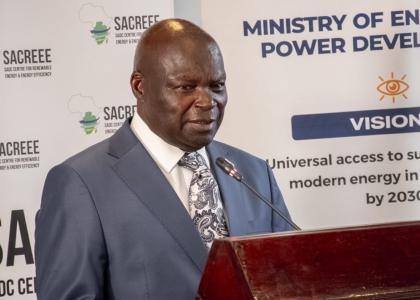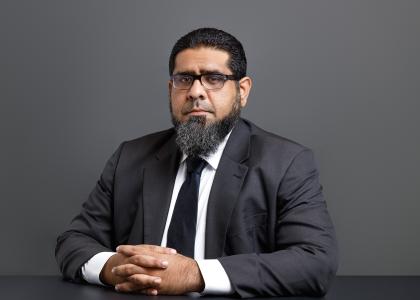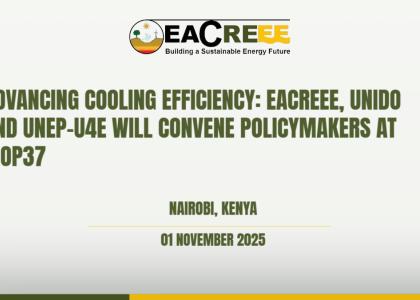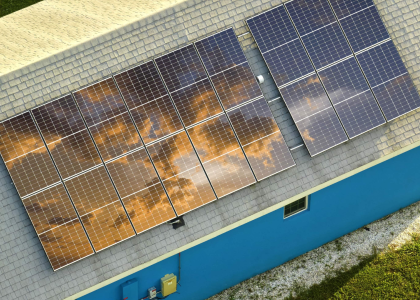The United Nations Industrial Development Organization (UNIDO) in partnership with the General Directorate for Natural Resources and Energy (DGRNE) of the Ministry of Infrastructure and Natural Resources (MIRN) and the Ministry of Planning and Finance (MPF), under the framework of the GCF project, "Building Institutional Capacity for a Renewable Energy and Energy Efficiency Investment Programme for Sao Tome And Principe”, is supporting Sao Tomé and Príncipe (STP) in developing regulatory frameworks and practical guidelines for the reduction of commercial energy losses and the implementation of distributed renewable energy systems through a consultancy support provided by MRC Consultants and Transaction Advisers. It is also linked with the regional activities of the Central African Centre for Renewable Energy and Energy Efficiency (CEREEAC), which was recently established by UNIDO and the Economic Community of Central African States (ECCAS) in Angola, Luanda.
Distributed Renewable Energy (DRE) refers to the generation of electricity near the point of consumption, typically within defined limits of capacity, technology, and using renewable energy sources such as solar, wind, and biomass. DRE has emerged as a viable and sustainable solution to meet growing energy demands through small-scale renewable power generation, enabling localized distribution. This approach not only enhances energy access but also contributes significantly to a country’s economic and environmental sustainability. DRE presents a particularly valuable opportunity for SIDS (Small Island Developing States) like STP due to unique energy challenges, including geographic isolation, high vulnerability to natural disasters, and heavy reliance on imported fossil fuels. These factors create barriers to energy security and economic resilience. In this context, DRE offers several key advantages such as reducing dependence on imported fuels, increasing energy autonomy, and supporting climate goals, making it a strategic pathway toward long-term energy sustainability.
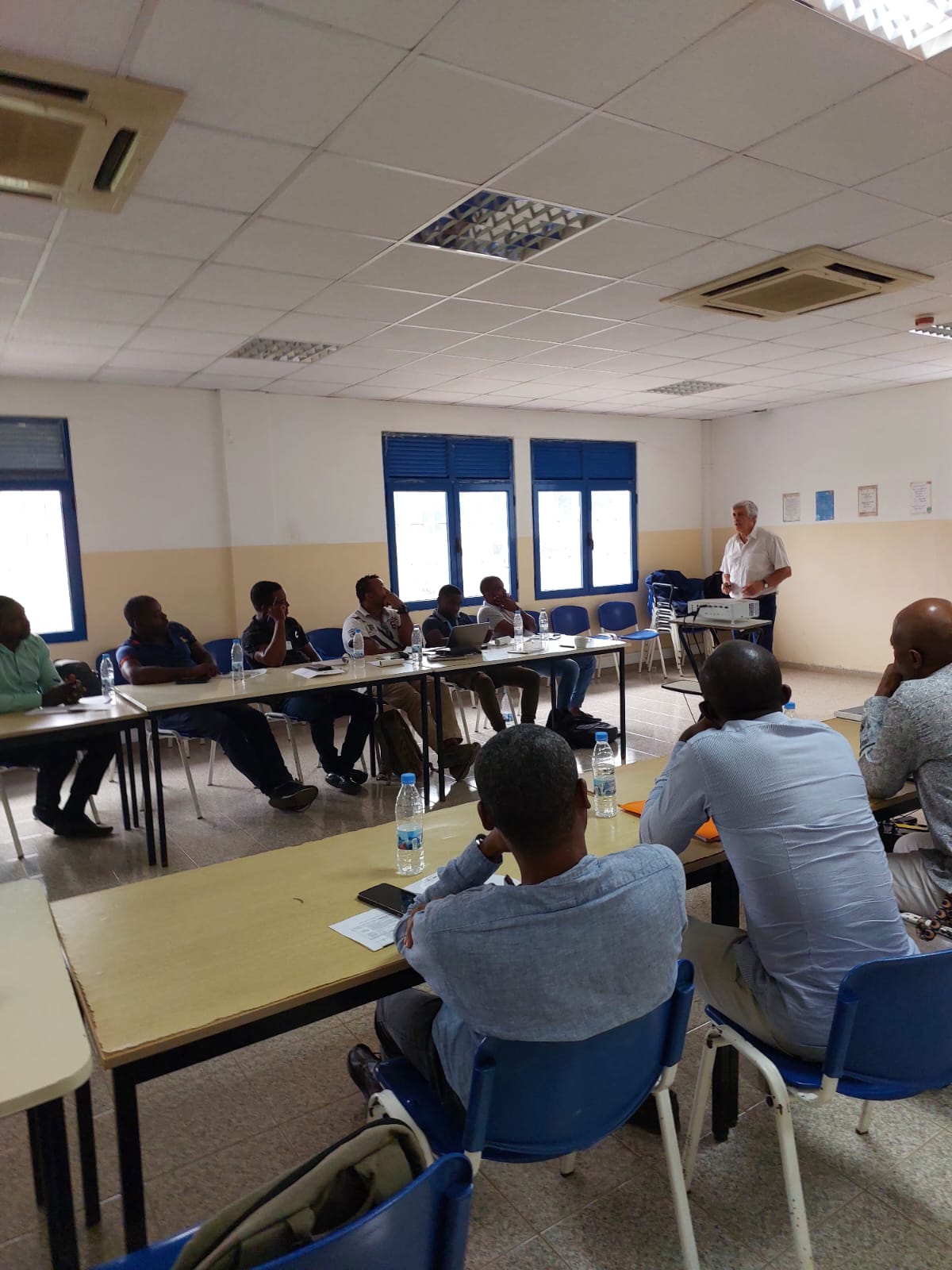
Non-technical losses (NTL), also known as commercial losses, refer to electricity losses that occur due to issues unrelated to the physical transmission of power. These include deficiencies or failures in billing systems. According to the Baseline Assessment Report prepared by MRC Consultants and Transaction Advisers, overall electricity losses in STP’s power system are around 37%, with 90% attributed to NTL. In STP, NTL are primarily linked to fraud in electricity supply and metering, absence or malfunction of energy meters, errors in meter readings or billing, and electricity theft. These inefficiencies not only reduce utility revenue but also undermine the reliability and fairness of the energy system. Addressing NTL is, therefore, essential for improving operational efficiency, financial viability, and trust in the electricity sector.
Recognizing the Government of STP’s strong commitment to strengthening the energy sector, the implementation of robust policy frameworks to address NTL and promote DRE represents a critical step toward enhancing the sector’s sustainability and operational efficiency. Under the leadership of DGRNE/MIRN, and in close coordination with AGER (General Regulatory Authority) and EMAE (Power and Water Company), these efforts will play a key role in accelerating a secure, inclusive, and sustainable energy transition. Moreover, this integrated approach reinforces the country’s dedication to ensuring universal access to clean energy, aligned with the global Sustainable Development Goals (SDGs).
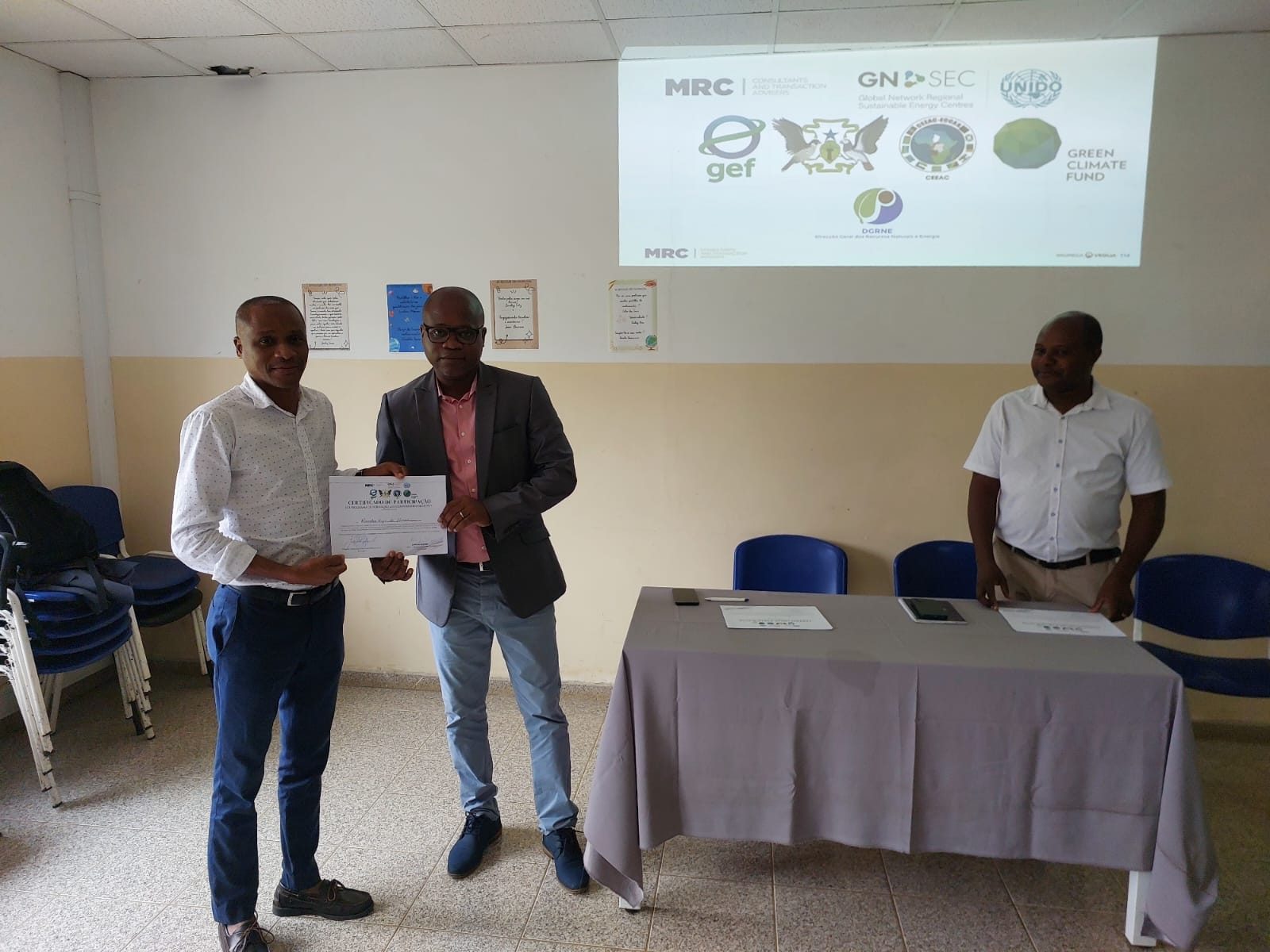
To consolidate endeavors on NTL and DRE, STP is advancing initiatives under the National Action Plan for the Decarbonization of the Energy Sector, which aims to increase the share of renewable energy in the national energy mix to 50% by 2030. In light of this, between March 3 and 5, 2025, the capital city of São Tomé hosted highly engaging Training Sessions on Renewable Distributed Generation (ERD) and Non-Technical Losses of Electricity (PNT) promoted by UNIDO, DGRNE/MIRN and MPF and instructed and managed by MRC Consultants and Transaction Advisers. The training gathered approximately 23-24 participants with 30% women participation, who demonstrated active engagement throughout the sessions. The interactive format encouraged lively discussions, ensuring a productive exchange of knowledge between the attendees and the trainers. The participants showed enthusiasm and commitment, contributing to a dynamic learning environment and enhancing their understanding of DRE and NTL.
The event was a valuable step in strengthening institutional capacity in STP, equipping key stakeholders with the necessary tools to support the country’s transition toward a more sustainable and efficient energy sector.
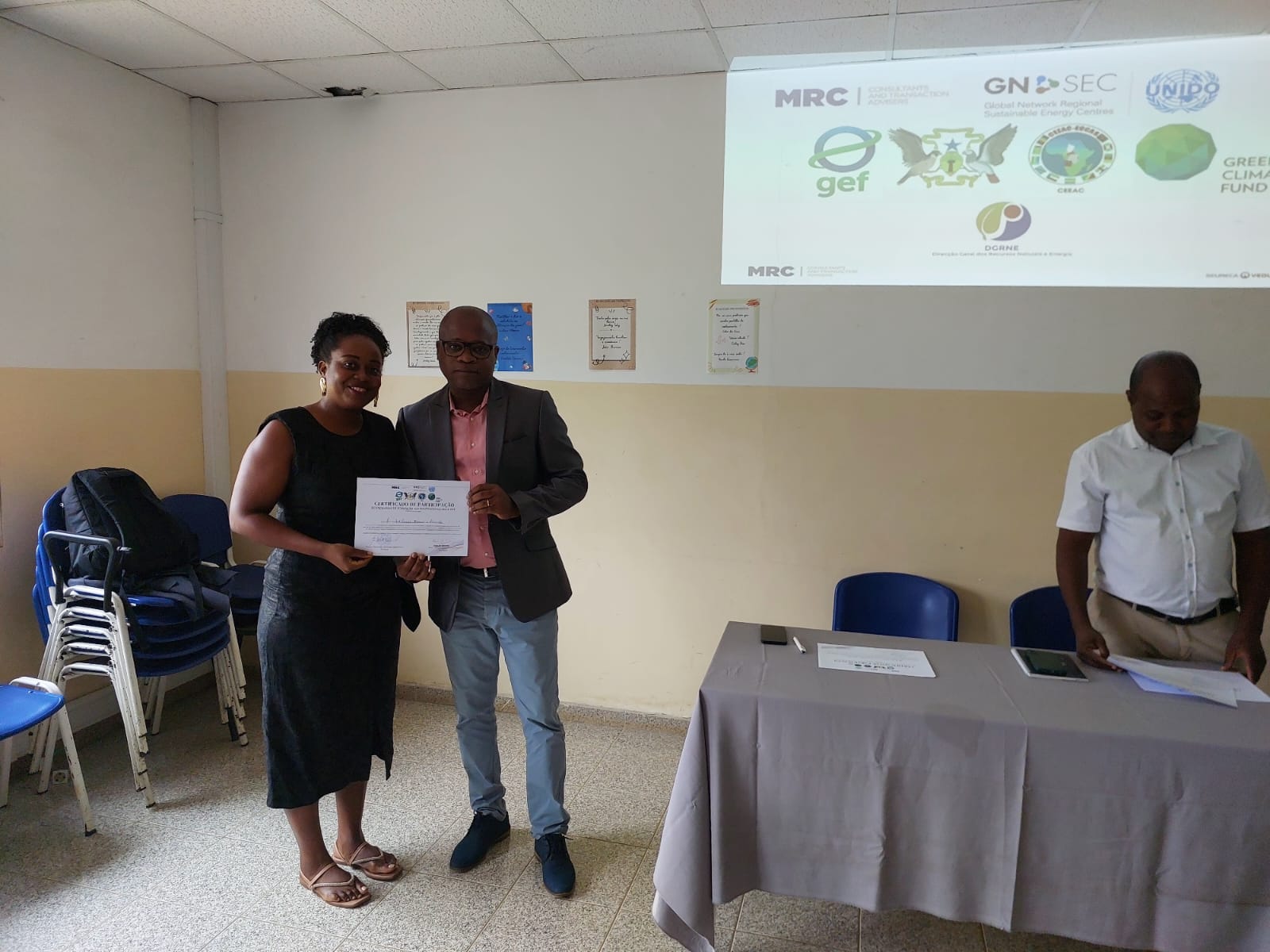
For further information, please contact:
Martin Lugmayr, Industrial Development Expert and GNSEC Coordinator: m.lugmayr@unido.org
Andrea Eras Almeida, Renewable Energy Project Expert: A.ERASALMEIDA@unido.org
Gabriel Maquengo, National Project Coordinator: G.LIMAMAQUENGO@unido.org
Belizardo Neto, National Young Energy Professional: B.DACONCEICAOAFONSONETO@unido.org

